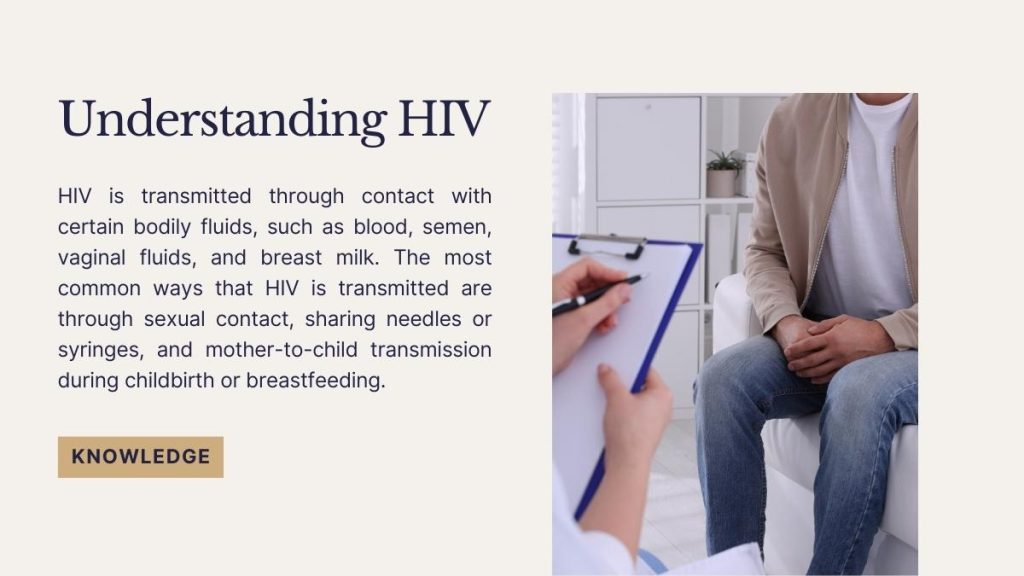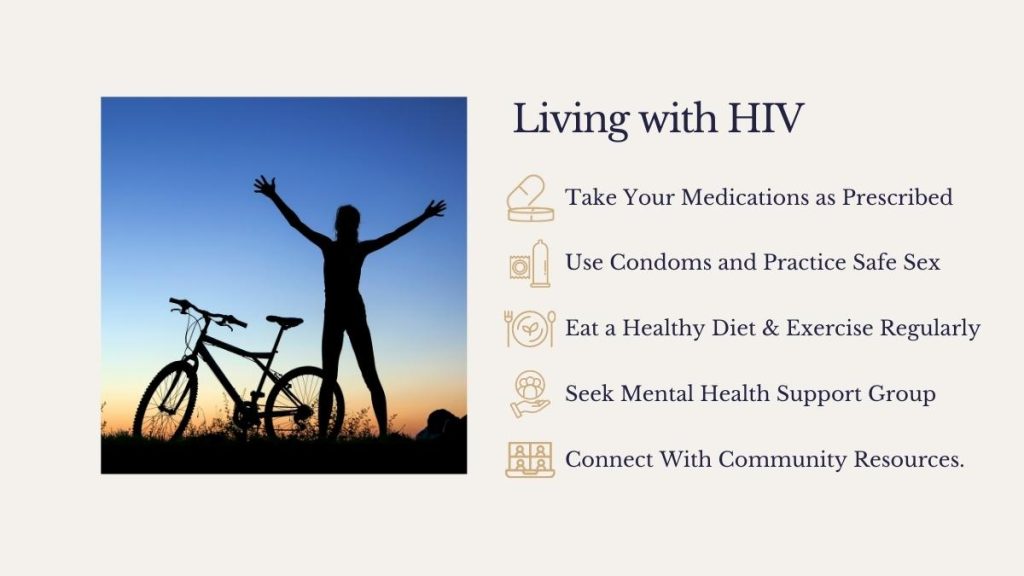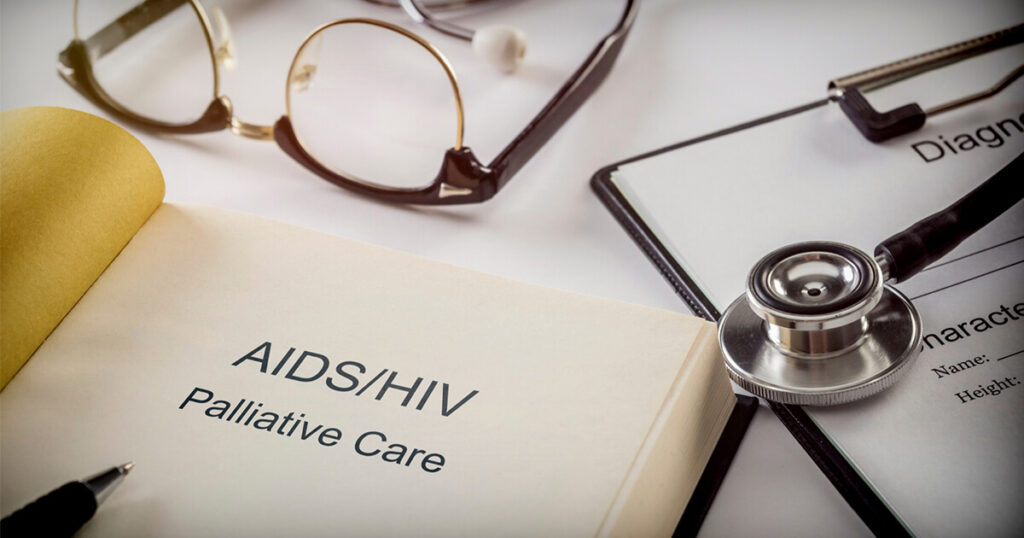Cure Methods for HIV or human immunodeficiency virus, is a viral infection that attacks the immune system. HIV can lead to acquired immunodeficiency syndrome (AIDS), a condition in which the immune system is severely weakened, making it difficult for the body to fight off infections and diseases. HIV is transmitted through contact with certain bodily fluids, such as blood, semen, vaginal fluids, and breast milk.
Understanding HIV & The Possibility of a Cure
HIV attacks the immune system by infecting and killing CD4 cells, which are a type of white blood cell that helps the body fight off infections. Without enough CD4 cells, the body is unable to defend itself against infections and diseases. HIV is a retrovirus, meaning that it inserts its genetic material into the DNA of the host cell. This makes it difficult for the body to get rid of the virus once it has infected a cell.
HIV is transmitted through contact with certain bodily fluids, such as blood, semen, vaginal fluids, and breast milk. The most common ways that HIV is transmitted are through sexual contact, sharing needles or syringes, and mother-to-child transmission during childbirth or breastfeeding.

HIV Treatment Options
- Antiretroviral therapy (ART) is the primary treatment for HIV. ART consists of a combination of medications that work together to suppress the virus and slow down its progression. There are several different classes of ART drugs, each of which targets a different stage of the virus’s lifecycle.
- Pre-exposure prophylaxis (PrEP) is a medication that can be taken by people who are at high risk of contracting HIV, such as those who have a partner with HIV or who engage in high-risk sexual behavior. PrEP works by preventing HIV from establishing an infection in the body.
- Post-exposure prophylaxis (PEP) is a medication that can be taken by people who may have been exposed to HIV, such as through unprotected sex or sharing needles. PEP must be started within 72 hours of exposure to be effective.
- There are other treatment options available for people living with HIV. These include medications to prevent and treat opportunistic infections and complications associated with HIV, such as pneumonia and tuberculosis. There are also medications available to manage symptoms such as nausea, diarrhea, and fatigue.
Challenges of Finding a Cure
Despite the availability of effective treatments for HIV, finding a cure for the virus remains a challenge. One of the main reasons for this is the persistence of HIV in the body. Even when ART is successful in suppressing the virus to undetectable levels, HIV can remain dormant in certain cells and tissues, making it difficult to completely eradicate the virus from the body.
Another challenge in finding a cure for HIV is the virus’s ability to mutate rapidly. HIV has a high rate of genetic mutation, which means that it can quickly adapt to new environments and evade the body’s immune system. This makes it difficult to develop a cure that can effectively target all strains of the virus.
HIV Cure Research
Despite these challenges, researchers are continuing to make progress in the search for an HIV cure. There are several different approaches being explored, including gene editing, broadly neutralizing antibodies (bNAbs), and therapeutic vaccines.
Gene editing involves using a technology called CRISPR to modify the genetic material of cells and remove the HIV virus. While this approach is still in the early stages of development, it shows promise for potentially curing HIV.
Broadly neutralizing antibodies (bNAbs) are a type of antibody that can recognize and neutralize a wide range of HIV strains. Researchers are exploring the use of bNAbs as a potential treatment for HIV, as well as a tool for preventing new infections.
Therapeutic vaccines are another approach being explored in the search for an HIV cure. These vaccines aim to stimulate the immune system to recognize and eliminate HIV-infected cells.
Advances in HIV Research: Exploring Potential Cure Methods
In addition to the approaches mentioned above, there have been several recent breakthroughs in HIV research. One such breakthrough is the development of long-acting HIV treatments. These treatments consist of injections that can be administered every few months, providing a convenient alternative to daily oral medications.
Another recent breakthrough is the discovery of a new class of drugs called maturation inhibitors. These drugs work by preventing the virus from maturing and replicating, potentially offering a new avenue for HIV treatment.

Living with HIV
While there is no cure for HIV, it is possible to live a healthy, fulfilling life with the condition. Here are some tips for managing HIV and maintaining overall health:
- Take your medications as prescribed. ART is highly effective at suppressing the virus and preventing the progression of HIV.
- Practice safe sex. Use condoms and other barrier methods to reduce the risk of transmitting or acquiring HIV and other sexually transmitted infections.
- Eat a healthy diet. A balanced diet can help boost your immune system and improve your overall health.
- Exercise regularly. Exercise can help improve your physical and mental health and reduce stress.
- Seek mental health support. Living with HIV can be challenging, and it’s important to prioritize your mental health. Consider seeing a therapist or joining a support group.
- Connect with community resources. There are many organizations and resources available to support people living with HIV. Look for local support groups or online communities to connect with others who understand what you’re going through.
While there is currently no cure for HIV, there are several effective treatments available that can help people living with HIV lead healthy, fulfilling lives. Researchers are continuing to make progress in the search for an HIV cure, and there have been several recent breakthroughs in HIV research. By understanding HIV, exploring treatment options, and taking care of yourself, you can live a full and healthy life with HIV.
